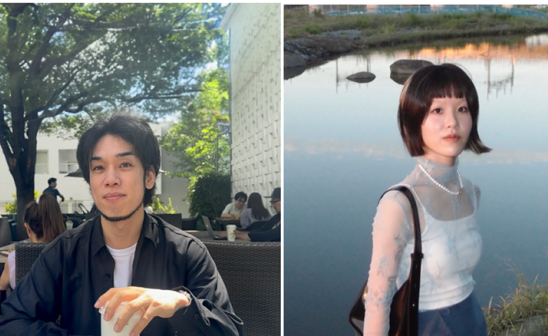CEAS Announces 2025 CEAS M.A. Thesis Prize in Japan Studies Awardees

The University of Chicago Center for East Asian Studies (CEAS) is pleased to announce that Ruoxuan Yuan (MAPH) and Takanori Kashino (MAPSS) are the winners of the 2025 CEAS M.A. Thesis Prize in Japan Studies.
Takanori Kashino’s thesis in the Social Sciences takes up an important issue, the impact that the threat of sexual harassment has on the risk assessment of potentially vulnerable individual entrepreneurs in Japan. The Selection Committee commented on Takanori’s design of an original methodology for testing his hypotheses which produced a compelling analysis of the results. In 2025-2026, Takanori will extend his research on how institutional, social, and cultural norms and support structures shape founders’ decision-making and performance in Japan. To advance this agenda, he is preparing applications to U.S. Ph.D. programs for Fall 2026. He is also working toward submitting three journal manuscripts based on his thesis and related projects which aim to generate evidence that bridges research and practice, informing program design, organizational strategy, and ecosystem policy across entrepreneurship contexts.
In the Arts and Humanities, Ruoxuan Yuan's thesis examines the history of reception of the Japanese Mono-ha avant-garde art movement in China, offering an original and compelling approach to how the conceptualization of materiality shifted across time and space. The Selection Committee felt that Ruoxuan excelled in close reading of artistic works, and her work demonstrated the importance of considering transnational flows in the study of Japanese cultural production. In 2025-2026, she plans to apply to doctoral programs in the field of art history, with a focus on art and material culture in East Asia.
CEAS sponsors an annual prize of $250 awarded for the best University of Chicago M.A. thesis dealing with topics related to Japan. University of Chicago students in 1-year, 2-year, and 3-year terminal M.A. programs with a final thesis requirement are eligible to apply. Starting in 2020, up to two prizes can be awarded each year. The Selection Committee considers the specific content, regional focus, and methodologies of annual submissions. Preference is provided to papers utilizing original source materials in an East Asian language.
 THE UNIVERSITY OF CHICAGO
THE UNIVERSITY OF CHICAGO

